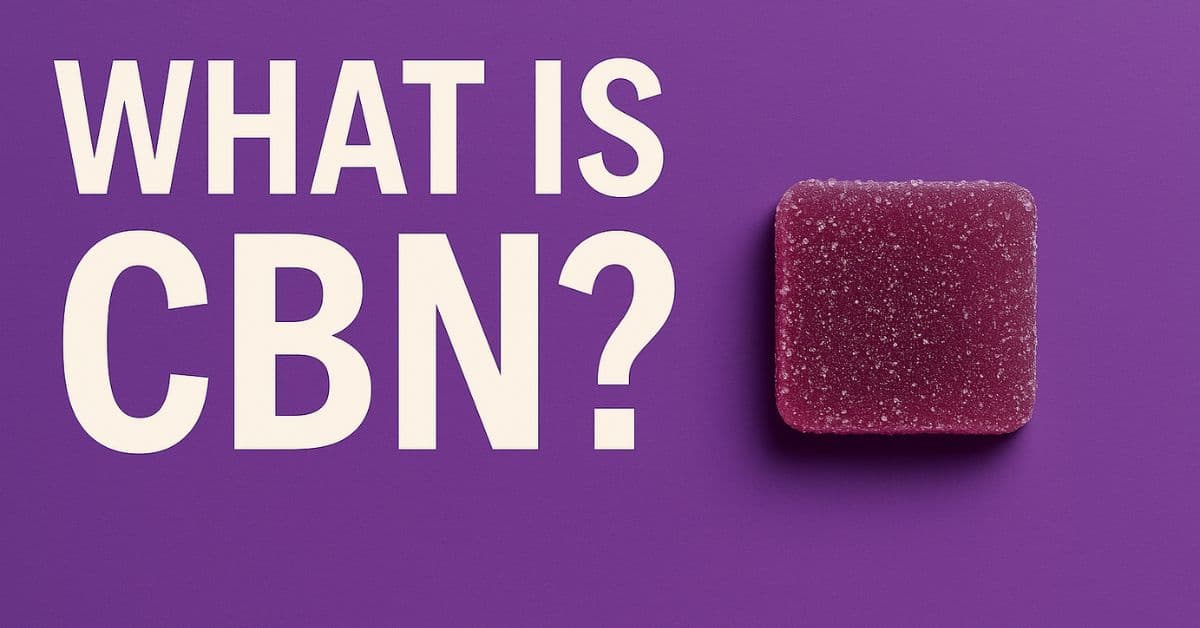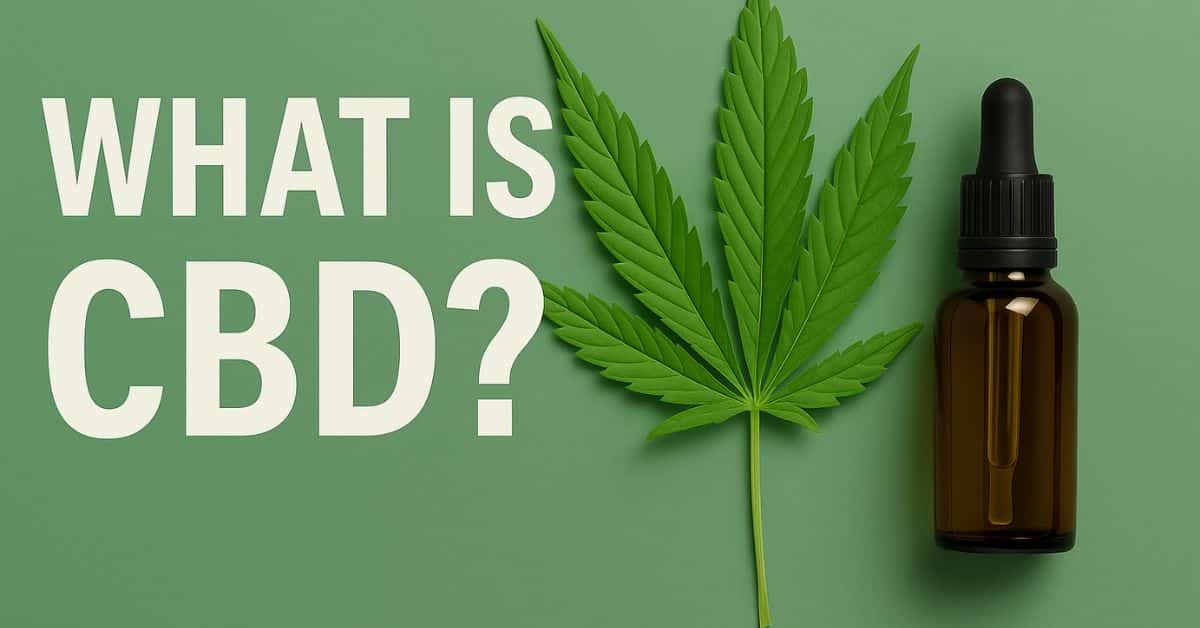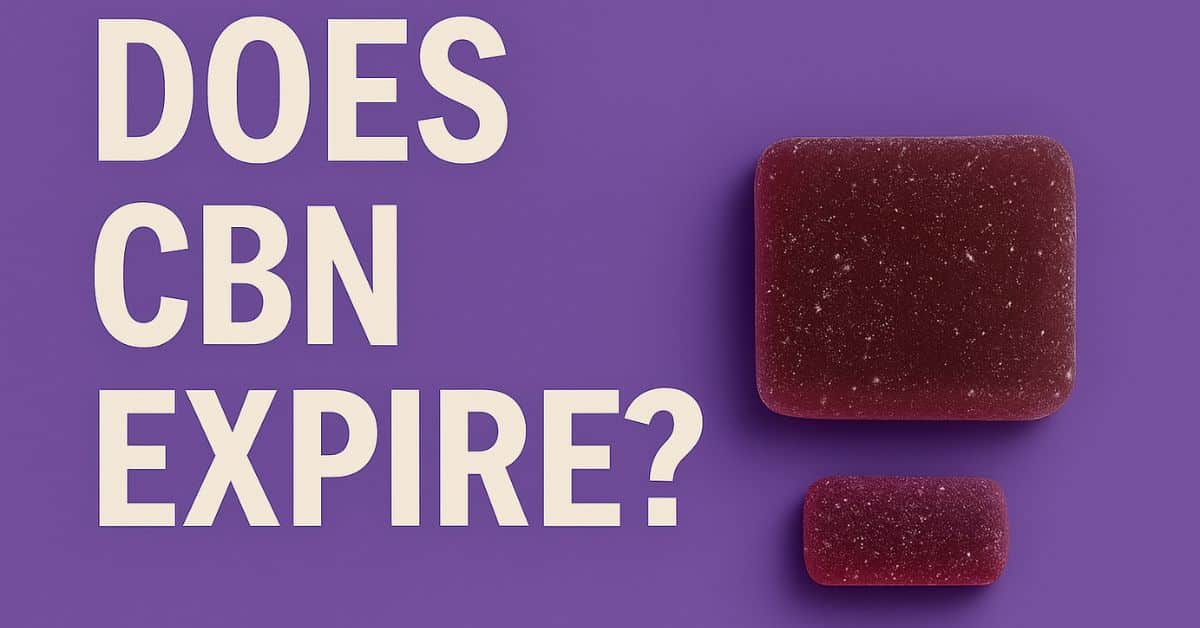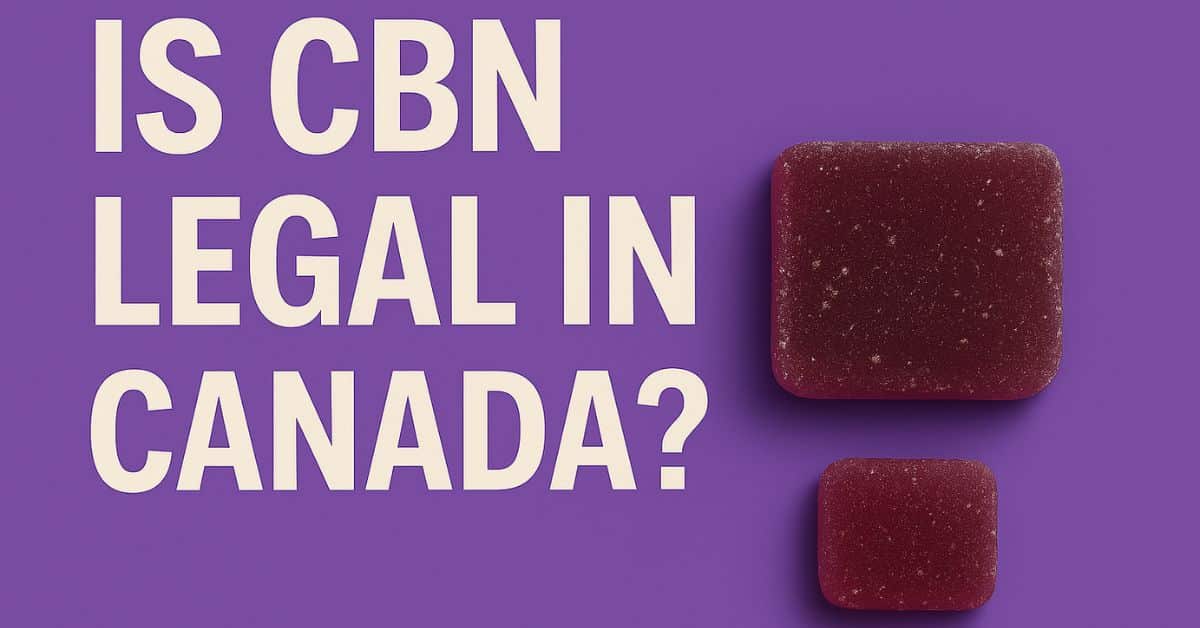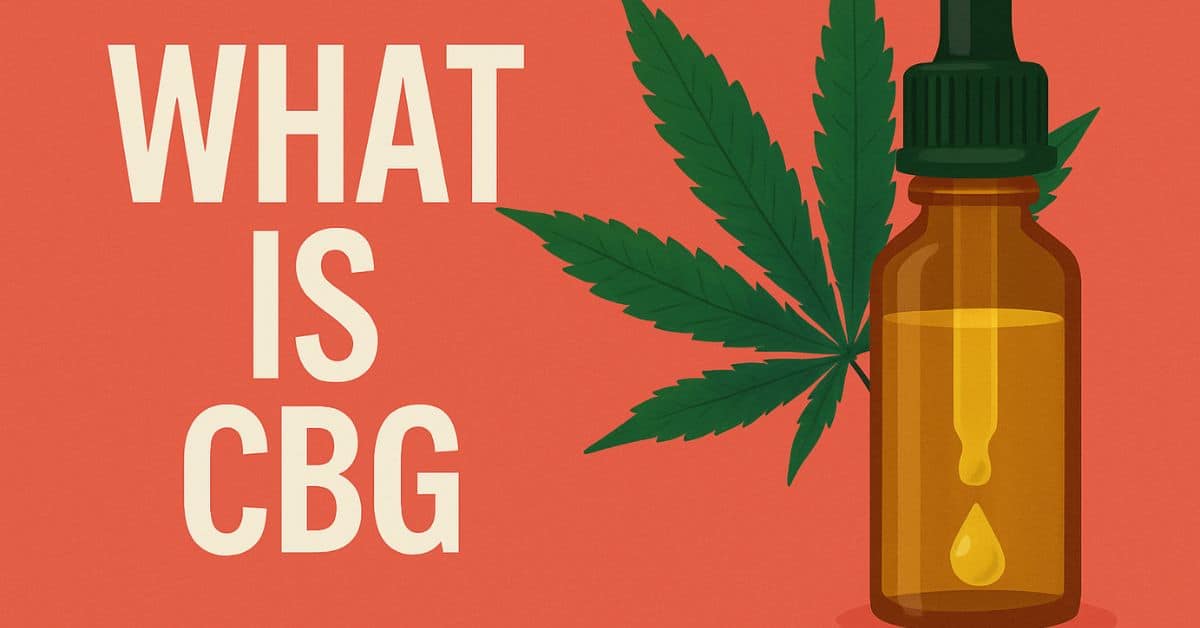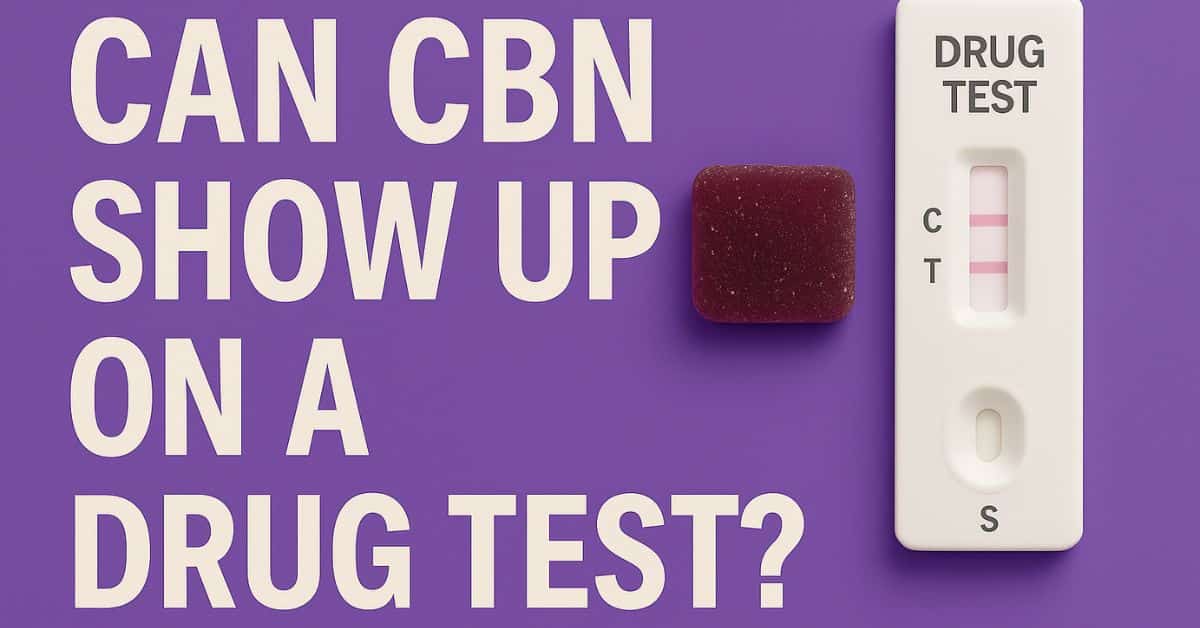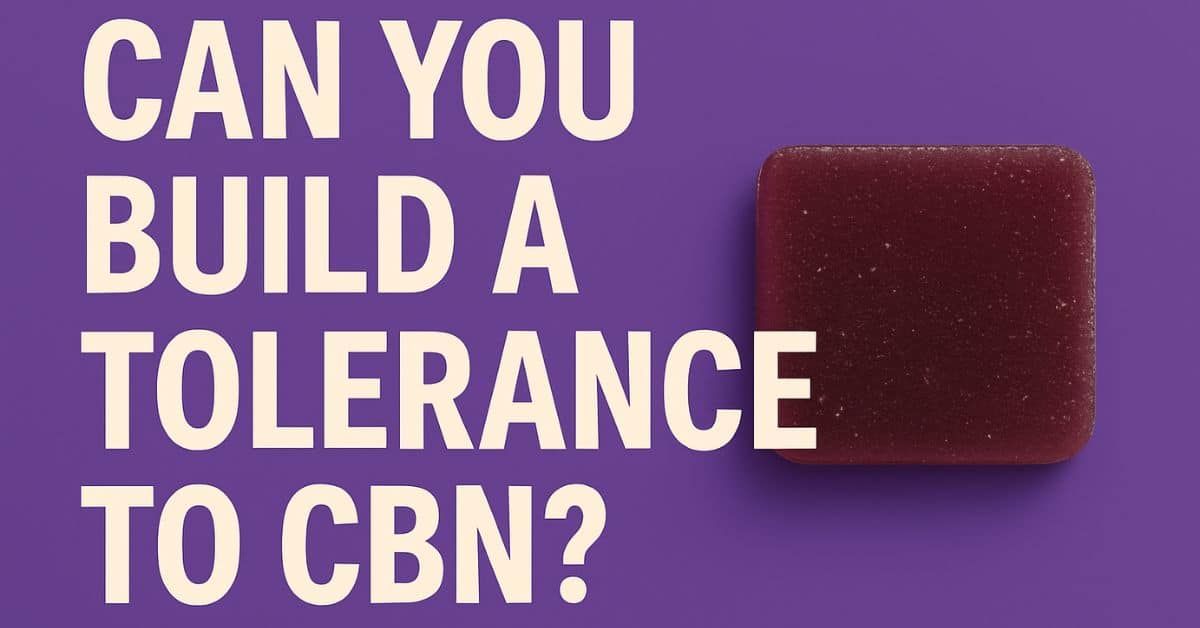Key Takeaways
- Cannabinoid: Cannabinol (CBN)
- Origin: Created when THC oxidizes in older cannabis
- Psychoactivity: Mild at most; generally non-intoxicating
- Common Uses: Sleep, relaxation, nighttime wellness
- Legal in Canada: Yes, through licensed cannabis retailers under the Cannabis Act
- Availability: Oils, gummies, capsules, vapes, and isolate
What Is CBN (Cannabinol)?
Cannabinol, or CBN, is a naturally occurring cannabinoid found in small amounts in cannabis. Unlike CBD, which is abundant in hemp, or THC, which is intoxicating, CBN develops when THC ages and oxidizes. This is why older cannabis plants often contain more CBN than freshly harvested ones.
CBN is considered mildly psychoactive at most, but in practical use it is generally non-intoxicating. Most Canadians describe it as calming, making it especially popular for nighttime routines.
How Does CBN Work?
CBN interacts with the body’s endocannabinoid system (ECS) – a network that regulates sleep, mood, appetite, pain, and immune balance.
- CB1 receptors (brain & nervous system): CBN binds only weakly, which explains why it doesn’t create a THC-like high.
- CB2 receptors (immune system & body tissues): CBN may influence recovery and inflammation pathways, though more research is needed.
Evidence Suggesting Potential Benefits of CBN
Sleep Support
- “Objective” rat study: Research at the University of Sydney (Lambert Initiative) found that purified CBN increased total sleep time—boosting both NREM (deep sleep) and REM phases in rats, with effects comparable to the prescription sleep drug zolpidem (1).
- Human clinical trial: A 2024 double‑blind, randomized, placebo‑controlled trial showed that 20 mg of CBN nightly significantly reduced the number of nighttime awakenings and overall sleep disturbances in people with poor sleep, without causing daytime grogginess (2).
Pain Relief
- Peripheral Pain Relief in Rats (2019): Research in European Journal of Pain showed that intramuscular injections of CBN (1 mg/mL), CBD, or their combinations significantly reduced nerve growth factor–induced muscle sensitization in rats. The effect was longer-lasting when CBN and CBD were paired, with no central side effects or motor impairment (3).
- Molecular Action on Pain Signaling (2025): A Yale-led study (published Jan 21, 2025, in PNAS) found that CBN, along with CBD and CBG, inhibits Nav1.8, a sodium channel in peripheral sensory neurons involved in pain signaling. While CBG showed the strongest effect, CBN still significantly reduced the electrical currents that trigger pain responses (4).
Anti-Inflammatory
- Lab study in mice: An October 2009 investigation using CBN in allergen‑sensitized mice found significant reduction in mucus production, indicating strong anti-inflammatory potential (5).
- Preclinical confirmation: InMed Pharmaceuticals’ lab models also showed that CBN decreased key inflammation markers, supporting its therapeutic promise (6).
Neauroprotection
- Cellular study (2000): Research published in the Journal of Pharmacology and Experimental Therapeutics showed that CBN protects neurons from serum-deprivation apoptosis—suggesting antioxidant, neuroprotective capabilities (7).
- Salk Institute discovery (2024): Scientists found that CBN (and enhanced derivatives) protected brain cells by preventing mitochondrial dysfunction, offering promise against neurodegeneration such as Alzheimer’s and Parkinson’s (8).
Therapeutic
- MRSA lab study (2008): Five cannabinoids, including CBN, displayed potent antibacterial effects against MRSA strains—highlighting its potential for antibiotic-resistant infections (9).
Potential Side Effects
CBN is generally well tolerated, but some users report:
- Dry mouth
- Drowsiness or fatigue
- Digestive discomfort
- Appetite changes
- Medication interactions
What Are The Different Types Of CBN Products?
With its rising popularity, CBN is now available in a variety of forms, allowing consumers to choose what best fits their lifestyle and wellness goals. Common types include:
- CBN Oils & Tinctures
- CBN Gummies & Edibles
- CBN Capsules & Softgels
- CBN Vapes
- CBN Isolate
How Much CBN Should You Use?
There are no official Health Canada dosing guidelines. A common approach is start low and go slow:
- Oils: 2–5 mg before bed, adjusting as needed.
- Gummies/Capsules: 5–10 mg per serving; wait 1–2 hours before redosing.
- Vapes: 1–2 puffs, then pause to evaluate.
Always follow the label, use third-party tested products, and start small.
How is Cannabinol (CBN) Different from Marijuana and Hemp?
CBN is a cannabinoid, not a plant. It can be found in both marijuana and hemp, but the context differs:
- Hemp – Legally defined in Canada as cannabis with less than 0.3% THC. Most CBN oils, gummies, and capsules are derived from hemp because it allows higher CBN yields without the risk of intoxication.
- Marijuana – High in THC, low in CBN unless aged. CBN formed from marijuana extracts is regulated more strictly and may carry intoxicating compounds.
What Is CBN in Weed?
In cannabis flower (“weed”), CBN is present in very small amounts, typically less than 1%. As THC oxidizes, more CBN develops. Some modern breeders are producing CBN-rich strains by harvesting later or manipulating growth cycles, but most flower remains THC- or CBD-dominant.
- Consumer use: Some Canadians blend CBN-rich flower with CBD or THC strains to create a more balanced cannabis experience.
- Effect in flower: CBN is non-intoxicating, so it won’t create a high. Instead, it may provide subtle calmness or relaxation.
How is Cannabinol (CBN) Different from Cannabidiol (CBD)?
Although both are non-intoxicating cannabinoids, CBN and CBD differ in origin, effects, and common uses:
- Research – CBD has extensive studies backing its use; CBN research is newer and more limited.
- Origin – CBD is abundant in hemp; CBN forms as THC ages.
- Interaction with ECS – CBD influences receptors indirectly; CBN weakly binds to CB1/CB2, which may explain its calming effect.
- Uses – CBD is widely chosen for daytime balance, stress, and inflammation, while CBN is often sought for nighttime relaxation and sleep support.
How is Cannabinol (CBN) Different from Cannabigerol (CBG)?
CBN and CBG are both non-intoxicating, but they serve very different roles in the cannabis plant and body:
- Use case – Canadians often turn to CBG in the daytime for balance and focus, while CBN is used at night for relaxation.
- Origin – CBG is the “mother cannabinoid”, the precursor to THC, CBD, and others. CBN forms later, as THC breaks down.
- Effects – CBG is often described as clarifying, focus-enhancing, or energizing; CBN is calming, sedating, and sleep-oriented.
- Receptor interaction – CBG binds more directly to CB1 and CB2 receptors, while CBN binds weakly and is less potent.
Is CBN Legal In Canada?
Yes. CBN is legal in Canada when purchased from licensed cannabis retailers. Products must meet strict standards under the Cannabis Act, including accurate labeling and third-party testing.
Bottom Line
CBN is a minor, non-intoxicating cannabinoid that develops naturally as THC ages. Unlike THC, it won’t make you high, but many Canadians explore CBN for its potential calming and sleep-supporting properties. Research is still in its early stages, so effects may vary from person to person.
For the best results, choose licensed Canadian products that provide third-party lab testing, start with a low dose, and increase gradually if needed. If you take other medications or have health conditions, consult a healthcare professional before adding CBN to your routine.
FAQ
CBN (cannabinol) is a non-intoxicating compound found in cannabis. It’s created when THC ages and breaks down. CBN is commonly used for sleep, relaxation, and general nighttime support.
No. CBN is mildly psychoactive but not intoxicating like THC. Most people do not experience a “high” when using CBN, especially at standard wellness doses.
Yes, but only through licensed cannabis retailers. CBN is regulated under the Cannabis Act and must be purchased from approved sources that follow federal and provincial rules.
No. While both are non-intoxicating cannabinoids, CBD is more widely used and studied, while CBN is often used specifically for sleep and calming effects.
In Canada, CBN is available as oils, capsules, gummies, vapes, and isolates.
Yes, as long as it’s a legal, properly labeled product purchased from a licensed retailer and you’re within possession limits. Never travel internationally with cannabis products, including CBN.
Some users report drowsiness, dry mouth, or lightheadedness. These effects are usually mild and go away with time or lower dosing.
CBN may interact with some medications. It’s best to speak with your healthcare provider before combining CBN with other substances.

